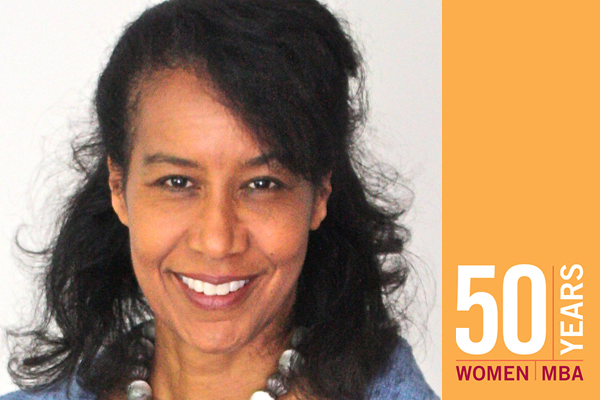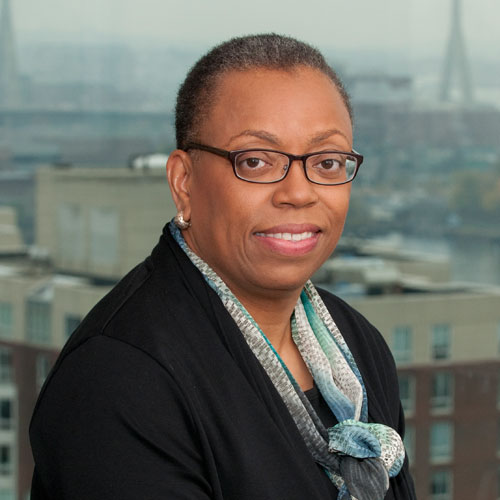
Ina Coleman
Biography
Ina Coleman is managing director of the Feminist Majority Foundation, one of the leading organizations dedicated to advancing the equality of women and girls worldwide.
What impact did HBS have on your life and the life of others?
Having graduated over 25 years ago, I realize that HBS cemented my belief that people are either leaders or followers. At HBS, learning about and discussing those who step up to lead encouraged me to think about the type of leader I wanted to evolve into as I progressed through my professional career and personal life. HBS impacted my life in many ways, but the most significant impact has been in developing a core belief that leaders who make a difference stay true to their principles even in the face of criticism. I have confronted many tough business decisions throughout the years and faced criticism from those who did not agree with me. I accepted that criticism with humility in order to learn from others around me, yet continued with what I thought was the most effective decision.
I advise others to 'stay true to your convictions, yet, be humble.' These are the values I gleaned from my HBS experience. Humble leaders are able to better motivate others because they lead with respect, not arrogance. As I mentor young people, I see the light in their eyes when I explain the importance of these values, whether one is leading during change, leading during bad times, or leading during good times.
After graduating from HBS, I worked in entertainment and then real estate development. Although those were two industries I had always been interested in, my inner voice knew that I had not yet found work that energized me. As I reflected for several years on what I found meaningful and enjoyed, I witnessed many accomplished women passed over for promotions they earned, or not being compensated the same as their male colleagues in identical jobs, and other gender discrimination in the business world. Seeing this distressed me to my core. I was appalled that in the 21st century, gender discrimination was still so entrenched in many organizations. And, as we all know, this systemic discrimination is more severe for black women and other women of color.
When the Feminist Majority Foundation (FMF) was looking for a senior executive to enhance their strategic planning, marketing, and project management, I viewed it as an opportunity to use my MBA to take action. Attending HBS emboldened me with the supreme confidence that my thoughts, opinions, and ideas are just as valuable as anyone else's. That confidence, combined with the strengthening of my resilience and perseverance after two demanding and enriching years at HBS, has provided me with the tenacity to not give up when striving to achieve my objectives. I thank HBS for helping me grow into the self-assured and bold person I am today.
These traits serve me well at FMF as we develop new strategies and programs to advance girls' and women's equality and economic development, and, most importantly, empower women and girls in all sectors of society and industry. All of our programs endeavor to include a global perspective and activities that promote leadership development, especially among young women. Once I started working at FMF, I knew I had found my calling. Working to impact society's continuing evolution into a culture of equality is meaningful and challenging for me. I know my goal to educate society on this issue is a lofty one, and I may not be able to change the world, but I can sure get the ball rolling, for I believe, as Mahatma Gandhi once said, "You must be the change you wish to see in the world."
Much effort is still necessary to continue clearing pathways to advance accomplished women as industry leaders. Many in society incorrectly believe that because of the changing demographics in our country, women have achieved equality, and that diversity is commonplace. Although people of color are over 37 percent of the U.S. population and women are over 50 percent of the workforce, these demographics do not come anywhere close to the actual numbers of diversity and gender representation at the highest levels of leadership. For example, analyzing the Fortune 500, there has been no change from 2012 to 2013 for the numbers of women in the senior executive suites.
These statistics are discouraging, especially for women of color, but I am a 'hopeaholic.' My hope and goal is that through regional and national discourse endorsing awareness of these issues, the public and private sector vision of senior executive leadership will include more women of all backgrounds and colors. My work advising and informing business on this issue includes organizing and leading forums through Stanford University, the University of Southern California, Claremont Graduate School, and various leadership institutes and organizations examining these issues.
Recently, HBS Dean Nitin Nohria made headlines in the business world for apologizing for how HBS treated its female students and faculty in the past. At the same time, he pledged to continue his work to promote leadership equality. I am glad to see that Dean Nohria is leading a national discussion on the issue, with strategies that include increasing the number of female protagonists in HBS cases over the next five years to 20 percent (currently only 9 percent), developing a program to increase the number of women serving on boards of directors, and other efforts. Because of my work on these issues, I am working with HBS to help meet these goals and keep HBS alumnae connected to the School. I am thrilled and honored to work with HBS on these issues.
I have substantial hopes for my daughters' futures and for the future of all female HBS graduates. My hope is that diverse women leading at the senior executive levels become the standard, not the exception. If an individual is a transformative leader who encompasses the drive and ability to successfully inspire others, give them the chance to demonstrate their excellence. Great leadership is not limited by gender or race; it is only limited by opportunity.

